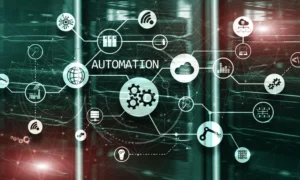In today’s fast-paced business environment, managing expenses efficiently is crucial for any organization’s success. Expense management software has become an indispensable tool for businesses of all sizes, helping streamline the process of tracking, submitting, and approving expenses.
However, not all expense management solutions are created equal. Choosing corporate hotel rates that offer a comprehensive set of features designed to simplify and enhance the entire expense management process is essential to benefit from such software truly.
This blog will explore the top 10 must-have features in modern expense management solutions.
1. Automated Expense Tracking
One of the most significant advantages of expense management software is its ability to automate the tracking of expenses. Automated expense tracking eliminates the need for manual entry, reducing the risk of errors and saving time. With features like receipt scanning and integration with credit card transactions, employees can easily capture and categorize their expenses. This automation ensures that all expenses are recorded accurately and promptly, leading to better financial reporting and control.
2. Policy Compliance and Enforcement
Compliance with company policies and government regulations is critical to expense management. Modern expense management solutions come equipped with robust policy compliance features that automatically flag any expenses that do not adhere to company policies. These features include setting spending limits, categorizing expenses, and ensuring that all required documentation is attached. This simplifies the review and approval process and helps prevent fraudulent or inappropriate expenses.
3. Real-Time Reporting and Analytics
Companies need access to real-time data and insights to make informed business decisions. Expense management software should provide comprehensive reporting and analytics capabilities, allowing finance teams to generate detailed reports on spending patterns, policy violations, and budget adherence. Real-time data helps identify discounted corporate hotel rates, trends, forecast expenses, and implement cost-saving measures. Additionally, customizable dashboards can provide stakeholders with the information they need at a glance.
4. Mobile Accessibility
In today’s mobile-first world, having access to expense management software on the go is essential. Mobile accessibility ensures that employees can capture and submit expenses anytime, anywhere. Modern solutions offer mobile apps that allow users to snap photos of receipts, submit expense reports, and track the status of their submissions. This convenience improves user experience and speeds up the reimbursement process.
5. Integration with Other Systems
Seamless integration with other business systems is a key feature of modern expense management software. Whether it’s integrating with accounting software, ERP systems, travel booking tools, or corporate credit cards, these integrations ensure that data flows smoothly between systems, reducing the need for manual data entry and minimizing errors. For instance, integrating corporate hotel rates and travel booking tools can automatically populate expenses, making the process even more efficient.
6. Multi-Currency and Multi-Language Support
In a globalized business environment, companies often have employees traveling internationally who have corporate hotel rates. Expense management software must support multiple currencies and languages to accommodate these needs. Multi-currency support allows users to submit expenses in various currencies, while automatic currency conversion ensures accuracy. Multi-language support ensures employees from different regions can use the software comfortably, enhancing adoption and usability.
7. Approval of Workflow Customization
Every organization has its own unique approval process for expenses. Modern expense management solutions should offer customizable approval workflows to match these processes. Whether it’s a simple one-step approval or a complex multi-level hierarchy, the software should allow businesses to define their workflows and set up automatic routing for approvals. This flexibility ensures that the approval process is streamlined and efficient, reducing delays and bottlenecks.
8. Receipt Management
Managing receipts is one of the most challenging aspects of expense reporting. Modern expense management software should offer robust receipt management features, including corporate hotel rates,receipt capture, storage, and matching. Employees can easily capture receipts using their mobile devices, and the software can automatically match receipts to corresponding expenses. This not only simplifies the submission process but also ensures that all necessary documentation is available for auditing purposes.
9. Compliance with Tax Regulations
Compliance with tax regulations is critical for avoiding penalties and ensuring accurate financial reporting. Expense management software should be equipped with features that help businesses comply with tax laws, such as VAT/GST tracking, mileage reimbursement calculations, and automated tax calculations. These features ensure that all expenses are recorded accurately and that the company complies with local and international tax regulations.
10. Security and Data Privacy
Given the sensitive nature of financial data, security and data privacy are paramount in expense management software. Modern solutions should offer robust security features, including data encryption, user authentication, and access controls. Compliance with data privacy regulations, such as GDPR and CCPA, is also essential. Ensuring that the software provider follows best practices for data security helps protect the company and its employees from potential data breaches and fraud.
Choose the Right Expense Management Solution
Choosing the right expense management software is crucial for streamlining expense processes, improving compliance, and gaining valuable insights into spending patterns. The top 10 must-have features outlined in this blog provide a comprehensive guide to what businesses should look for in modern expense management solutions. By selecting software that offers automated expense tracking, policy compliance, real-time reporting, mobile accessibility, integration with other systems, multi-currency, and multi-language support, customizable approval workflows, receipt management, compliance with tax regulations, and robust security, companies can ensure that they are well-equipped to manage their expenses effectively.
Implementing a solution with these features will enhance efficiency and accuracy and contribute to better financial control and decision-making. As businesses continue to evolve and expand, a robust expense management system will be a key factor in maintaining financial health and achieving long-term success.

































